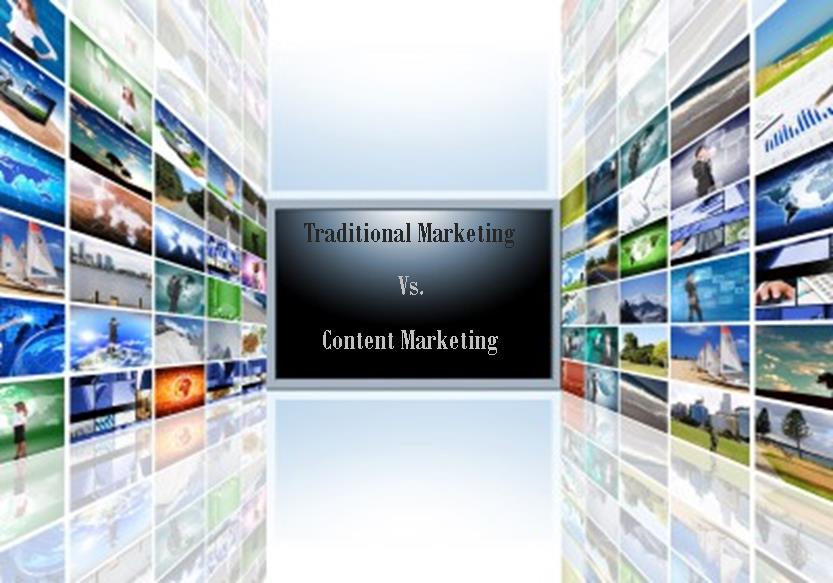How Is Content Marketing Different than Traditional Marketing?
In general, marketing is the process of attracting, retaining, and growing your customer/client base. 
Traditional marketing practices, (that is prior to the internet, DVR’s, and email) went something like this….
- A woman between the ages of 30-45 is watching her favorite show when a commercial for hair coloring that covers gray comes on.
- A man is at home reading the evening paper (remember those) and he sees a Lexus ad or he is interrupted by a telemarketer selling home improvement services.
- A retired married couple receives a health advisory and herbal supplement catalogue (called a magalogue) in the mail with an irresistible offer.
At this time marketers were dealing with a mass market; and cast a wide net based on targeted demographic data that they purchased.
Today’s market is fragmented.
- People can watch their favorite shows on Netflix or record them on their DVR and skip the commercials.
- They have caller-id to help them screen phone calls, that is, if they even have a home phone. Many millennial’s do not.
- Circulation for the paper and print magazines are way down.
- Email is more economical and has better reach for people under the age of 50 years old.
How Content marketing is different.
Content Marketing is a marketing method that establishes you as an authority in your field by providing useful and free content to consumers (via your website, social media channels, and offline channels) in exchange for their email address or other information.
This willing exchange gives YOU, the marketer, permission to send this potential customer or client useful information about your service or product.
Whereas the traditional form of marketing is intrusive; no one is sitting there watching their favorite television show hoping for the next commercial to come on.
The traditional or interruption form of marketing is still widely used and can be very effective depending on who your market is and what your marketing budget is.
In fact, Facebook is launching a kind of app for the Android phone that will serve up ads that scroll through the home screen (citation).
What constitutes permission?
There are two kinds of permission: implicit and explicit permission.
With explicit permission you provide the consumer with a free service, white paper, ebook , or some other goodie in exchange for her email address. She has given you explicit permission to send her information in her email box.
Implicit permission is different. Let’s say someone visit’s a site that provides tax information. That site attaches a cookie to the visitor and then she is served up ads for tax services all over the net. Since she’s visited the tax site, she has given implicit permission to market tax services to her.
This is a sophisticated and controversial form of marketing that is gaining traction with companies with larger budgets.
But for most entrepreneurs and small and medium sized businesses, content marketing is much more accessible, relatively cost effective, and it gets results.
Questions or comments about content marketing?
We’d love to hear from you…so don’t be shy leave a comment.
Krista helps small and medium sized businesses:
Get clarity on their marketing message, attract their ideal clients, customers, or patients to their business or practice, and create elegant and effective content for their websites, email campaigns, newsletter, brochures, videos, and more…
